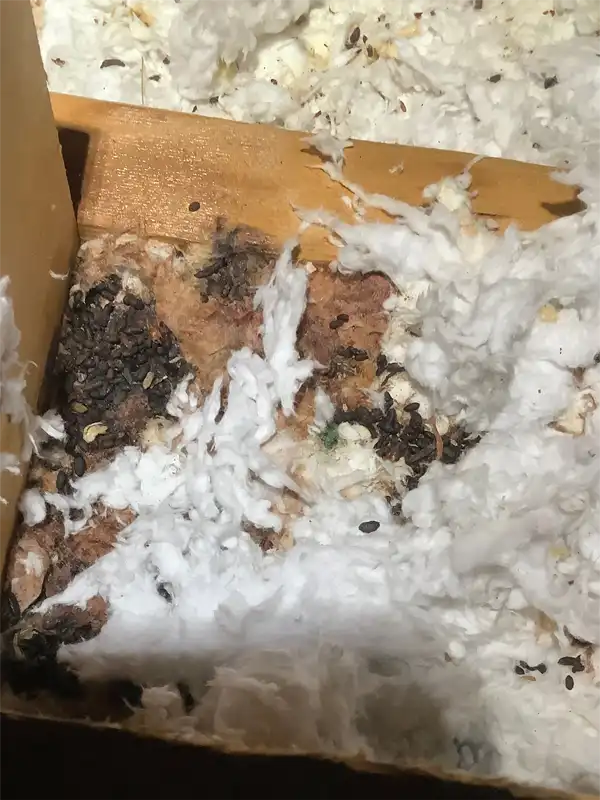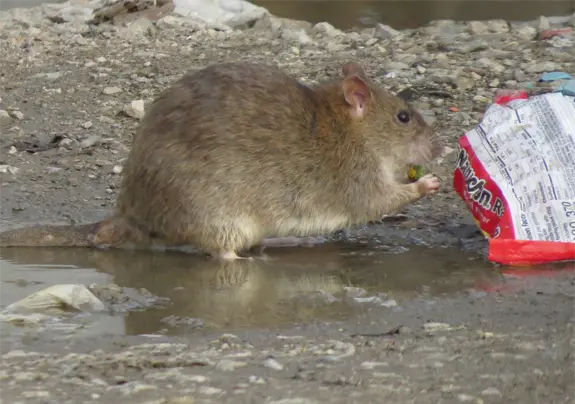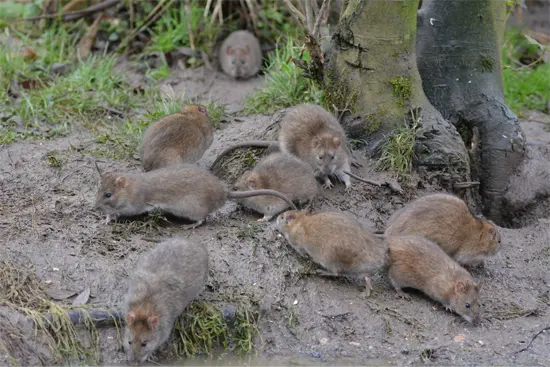Rat Control in Central Florida
Call Us Today at Advertise with Us
Florida's Rat Control Experts Safeguarding Your Home from Infestations
Seeing signs of rats in your Florida home can quickly transform feelings of comfort into distress. Once you spot droppings, hear scurrying, or see other evidence of rats, it’s time to take action. Rats might seem like cute and harmless creatures, but they cause significant damage once inside the home. Beyond physical destruction, rats spread diseases and trigger allergies. An infestation can happen quicker than you’d imagine since rats are prolific breeders.
That’s why Florida Wildlife Trappers offers comprehensive rat control to eliminate current infestations and prevent future problems. With an Integrated Pest Management (IPM) approach, our specialists use the latest techniques and tools to evict rats humanely. Then we target the root causes to keep them from coming back.
Give Us a Call At (407) 617-1193

Signs of Rats
Rats are timid and prefer to avoid humans. Even if you have an infestation, you might never spot a rat darting through your home. Instead, look for these signs that rats have moved in:
- Droppings – Rats produce 40-50 pellet-like droppings per day. They are larger than mouse droppings.
- Urine stains – Urine stains along their pathways glow under UV light. The highest concentration is around food and nesting areas.
- Gnawing damage – Rats gnaw on materials to wear down teeth. Look for gnaw marks or holes on food packaging, furniture, drywall, and wires. Marks are larger than mice.
- Nesting materials – Rats build nests from soft materials like insulation, paper, and fabrics. You may find shredded piles in out-of-sight areas.
- Sounds – Listen for scurrying in walls and ceilings, especially at night. Rats are most active after dark.
If you spot any of these signs, Florida Wildlife Trappers can inspect your home and confirm if rats have moved in. We identify all entry points, nesting sites, and high activity areas. An accurate assessment determines the best rat removal plan.
Rat Removal
When rats invade your home, Florida Wildlife Trappers prioritizes a humane removal process. We use harmless trapping techniques to catch and remove all rats on the property.
Snap traps and live traps effectively catch rats without chemicals or poisons. Baiting the larger devices with peanut butter, cheese, or meats draws rats in. Once rats take the bait, the trap triggers and catches the rodent.
Traps are strategically placed along baseboards, in closets, attics, garages, and anywhere else rats are active. The number used depends on the size of the infestation. Trapping takes 7-14 days to remove an existing rat population.
All trapped rats are safely removed from the property and traps reset until no more rats are caught. Sanitation and exclusion come next to prevent rats from returning once trapping finishes.


Rat Prevention
Getting rid of rats currently in your home solves part of the problem. But if entry points and attractions remain, new rats will invade to claim your home as their own. That’s why prevention is a critical part of our rat control process.
Rats can squeeze through openings as small as 1/2 inch wide. Common entry points include:
- Cracks in foundations and walls
- Gaps around windows, doors, pipes, wires, vents
- Uncovered vents
- Loose siding
- Openings where utilities enter the home
Our technicians methodically check inside and outside to locate and seal all possible entryways. Steel wool, copper mesh, caulk, concrete, and other durable materials keep rats from chewing back in.
Potential Health Hazards from Rats
While rats themselves tend to avoid humans, they can transmit dangerous diseases through their urine, droppings, bites, or scratches. Rats are known carriers of leptospirosis, a bacteria that can lead to liver and kidney damage. Protect yourself by wearing gloves and avoiding contact with rats or their bodily fluids.
Rat droppings also contain harmful bacteria, viruses, and parasites. Ingesting anything contaminated by rat feces can cause severe gastrointestinal distress or fever. Be vigilant about cleaning up after rats, especially around food prep areas. When disposing of rat droppings, protect yourself with a mask and gloves.
Rat bites, while uncommon, carry risk of bacterial infection. Promptly wash any rat bites with soap and warm water, applying antibiotic ointment after. Look for signs of infection like redness, swelling, drainage, or fever and contact a doctor if they develop. The best prevention is sealing up any entry points and removing food sources to deter rats from inhabiting your property. While rats tend to avoid confrontation, caution is warranted around them.
How to Deter Rats from Your Home
Rats enter homes seeking food and shelter. Sanitation and home maintenance steps make your home far less inviting
Following these sanitation practices removes food sources and shelter that attract rats. Your home becomes an undesirable habitat.
Recurring Rat Inspections
Rats are resourceful at finding new ways back into your nicely sealed home. That’s why we recommend ongoing rat prevention inspections every 2 months.
These recurring visits allow our technicians to proactively spot and seal any new entry points before rats move back in. We also ensure that recommended sanitation practices are being followed to avoid creating attractions.
With rat inspections, Florida Wildlife Trappers keeps your home protected year-round. Rat prevention is far more effective than waiting for another infestation to take hold.
Contact Florida Wildlife Trappers
Don’t wait and hope a rat problem resolves itself. The longer rats inhabit your home, the more damage and health hazards they create. Florida Wildlife Trappers offers reliable rat control services across the state.
Our humane trapping removal, thorough prevention measures, and recurring inspections provide complete rat control. Contact us today for a customized rat removal and prevention plan designed for your home.
Give Us a Call At (407) 617-1193

